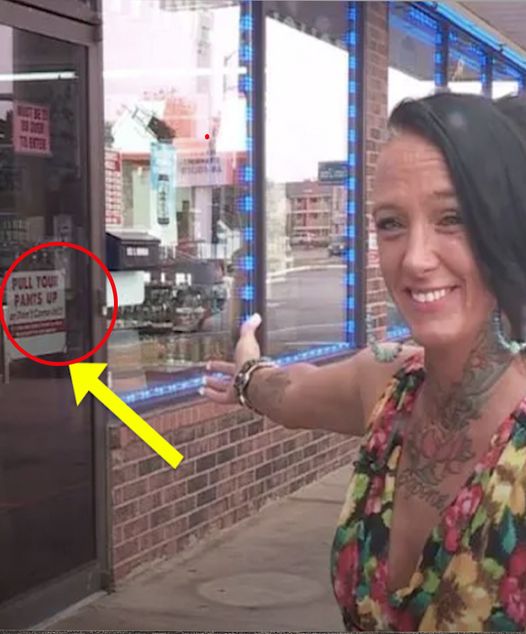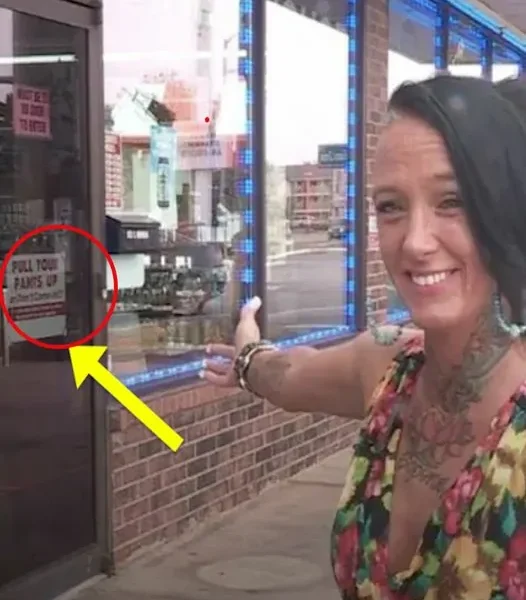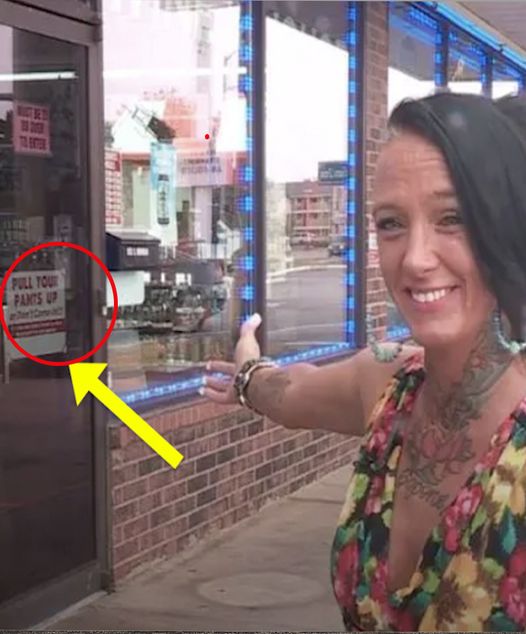In a world where it seems like anything can be deemed offensive, one Oklahoma liquor store found itself in the middle of a heated controversy. By putting up a sign in their shop window that read, “Pull your pants up or don’t come in,” they unknowingly ignited a firestorm of opinions.
While it’s important to strive for a society free from bigotry and bullying, sometimes we may question how far we’ve gone in policing each other’s actions. The store’s sign may not directly criticize any specific group or discriminate against them, but it still managed to provoke outrage among some.
Despite the controversy, it’s worth considering the intention behind the sign. Chad Gilbert, a manager at Midwest Wine and Spirits, shared his perspective, saying, “I realize wearing pants low is a fashion statement for some, but it doesn’t work for me, and I find it somewhat offensive.” The store employee added that having sagging pants can make it easier for individuals to steal bottles.

However, Sunshine Weatherby, a customer from the neighborhood, offered a contrasting viewpoint. She commented, “I can see if it was like a church. There are families there, which may bother you, but this is a liquor store. Worse has happened in a liquor store.”
While this incident may not seem significant in the grand scheme of things, it highlights the ongoing debate around what is acceptable behavior and where the line should be drawn. It’s essential to find a balance between addressing important issues and creating unnecessary drama.
Online platforms played a crucial role in amplifying the controversy, as the sign quickly went viral. This incident serves as a reminder that in today’s digital age, a few clicks can turn someone or something into the center of an internet storm.
As we navigate through a changing world, it’s crucial to remember that understanding and respecting different perspectives is key. Open dialogue and empathy can help bridge the gap between generations and foster a more inclusive society.






